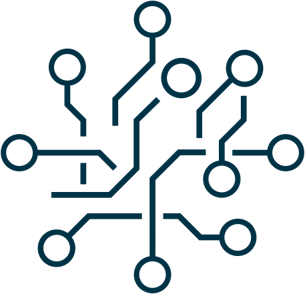Today, businesses are navigating a complex maze of digital challenges where security is persistently under scrutiny. As an integral facet of cybersecurity, granular access control assumes a crucial role in upholding the confidentiality, integrity, and availability of sensitive data. This level of precision allows businesses to meticulously fine-tune permissions, either granting or restricting access based on specific user roles or responsibilities. By doing so, critical information is safeguarded and unauthorised access is effectively prevented. While the importance of granular access control cannot be overstated, Cloud Identity and Access Management (IAM) emerges as a complementary force, bolstering the cybersecurity posture of businesses. In this blog, we will delve into the multiple roles played by Cloud IAM in advancing granular access control for businesses.
1. Fine-Grained Control
The term 'granular access control' is more than just a buzzword in the realm of Cloud IAM. It refers to the practice of fine-tuning and managing permissions and privileges for users or entities within a system. With this control, administrators are able to define and enforce specific, detailed permissions based on various factors, including user roles, responsibilities, or the sensitivity of the data being accessed. In addition, they can also sculpt a comprehensive access landscape within their digital environment. For instance, healthcare organisations leverage granular access control as part of their strategy to comply with regulations set forth by the Health Insurance Portability and Accountability Act (HIPAA). By following the principle of least privilege, access is customised to align precisely with the responsibilities of individuals. This prevents the disclosure of sensitive healthcare data by unauthorised parties.
2. Group Dynamics
One of the key advantages of Cloud IAM is its ability to seamlessly integrate with an organisation's structure. In line with the concept of group-level access permissions, users are assigned to groups based on their roles and responsibilities. Instead of micromanaging individual user permissions, IAM allows organisations to set the rules at the group level, promoting efficiency and reducing the likelihood of oversight. With granular access control, defining specific permissions and restrictions at a highly detailed level is made possible, paving the way for a dedicated approach to user access. For instance, when a user joins or leaves the organisation, their access permission will be changed accordingly. As such, the administrative workload is simplified, while the risk of human error is also reduced, ensuring appropriate individual access rights during personnel transitions.
3. Hierarchical Precision
Whether it is setting a global standard for the entire organisation or implementing precise control at the department or project level, Cloud IAM excels at adapting to an organisation's hierarchy. This is akin to a digital pyramid where access control can be incorporated at different levels. Complemented by IAM consulting, the hierarchical approach avoids a one-size-fits-all concept, better addressing the niche needs of distinct segments within the organisation. In this model, permissions and roles are assigned at different levels, such as organisation, folders, and projects. As an organisation grows, new departments or business units can be added to the hierarchy, paving the way for easy adaptation of access controls. This is achievable through permissions that can be inherited or modified at different levels.
4. Tailored Roles for Every Need
Flexibility is key in the digital age and Cloud IAM recognises this by enabling the creation of custom roles with specific permissions. For instance, a technology company features specialised DevOps teams; with Cloud IAM, each team member is delegated unique responsibilities, respectively. This optimisation not only enhances operational efficiency through a personalised approach to access control but also mitigates the risk of unauthorised actions, fostering a more agile and responsive digital environment. Essentially, IAM solutions keep access to individual responsibilities aligned, establishing a secure and efficient operational landscape.

5. Conditional Access
Conditional access is a cybersecurity measure that presents specific criteria or conditions to be met before a user is granted access to a system, application, or data. By leveraging conditional access policies, Cloud IAM contributes an additional layer of security. The policies inject an intelligent dimension into access control, be it within a specific time window, on a designated device type, or within a particular geographical location. Thanks to this intelligent approach, effective cybersecurity solutions are put in place to encounter potential cyber threats. Here is an overview of the role of conditional access in cybersecurity:
- Adaptive Threat Response
Conditional access dynamically adjusts access policies based on the current threat landscape, ensuring that access controls align with the evolving threat environment. For instance, if a security threat or anomaly is detected, access conditions can be modified in real-time to limit potential risks. - Automating Compliance Checks
Conditional access automates compliance checks by defining specific conditions that users must meet to gain access. These conditions can include factors like device health, location, or multi-factor authentication. - Detecting Anomalous Activities
To identify anomalous activities, conditional access establishes specific conditions that trigger alerts or actions when deviations from normal behaviour are identified.
Learn more: The Financial Services Ecosystem – The Client Is at the Center, Not in the Way
As businesses in Singapore embrace the digital revolution, the need for robust IAM solutions is more critical than ever. Beyond a security measure, IAM serves as a strategic move towards a dynamic digital future.
Adnovum is a Swiss IT company that delivers secure digital transformation of business processes. Our core competencies span the development of customised software, IAM and IT consulting, compliance and cloud data security solutions, as well as cyber security services.
Contact us today to find out more.





